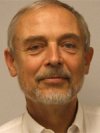Winner 2011 – Bertil Fredholm
 This year's prize recognises contributions in basic science research and the winner is Bertil Fredholm, professor of pharmacology at the Karolinska Institutet, Sweden.
This year's prize recognises contributions in basic science research and the winner is Bertil Fredholm, professor of pharmacology at the Karolinska Institutet, Sweden.
Prof Fredholm has built an outstanding body of work over a highly distinguished career. His pioneering research on adenosine and its receptors has not only significantly advanced the understanding of physiological and pathophysiological CNS mechanisms, but has provided new targets for drug development across a range of brain disorders.
After his PhD training focusing on the sympathetic nervous system and transmitter regulation, Fredholm turned to adenosine. Motivated by his early realisation that the most widely used psychoactive drug – caffeine – acts by blocking actions of adenosine on its receptors, he began by attempting to identify the factor released by nerve stimulation in intact tissues that regulated transmitter release, transmitter actions and circulation. Having identified adenosine as the likely candidate, he was able to document how its release from effector cells responded to nerve activity or reduced circulation and how adenosine could traverse the synapse to act presynaptically to limit transmitter release in several tissues. Fredholm has documented the generality of this concept in a series of highly influential papers and review articles.
With a body of work that now spans more than 30 years and a range of techniques to his credit, Fredholm is today one of the world leaders in this highly active and important field, and the hub of a worldwide research network.
Speaking on behalf of the ECNP Award Committee, Julien Mendlewicz, Belgium, said, “Bertil Fredholm’s leadership in the field and outstanding research achievements, based on broad knowledge and outstanding scientific intelligence, make him the ideal candidate for this award.”
The award will be presented at the 24th ECNP Congress on 3-7 September 2011 in Paris, France, where Professor Fredholm will also deliver the prize-winner’s plenary lecture.